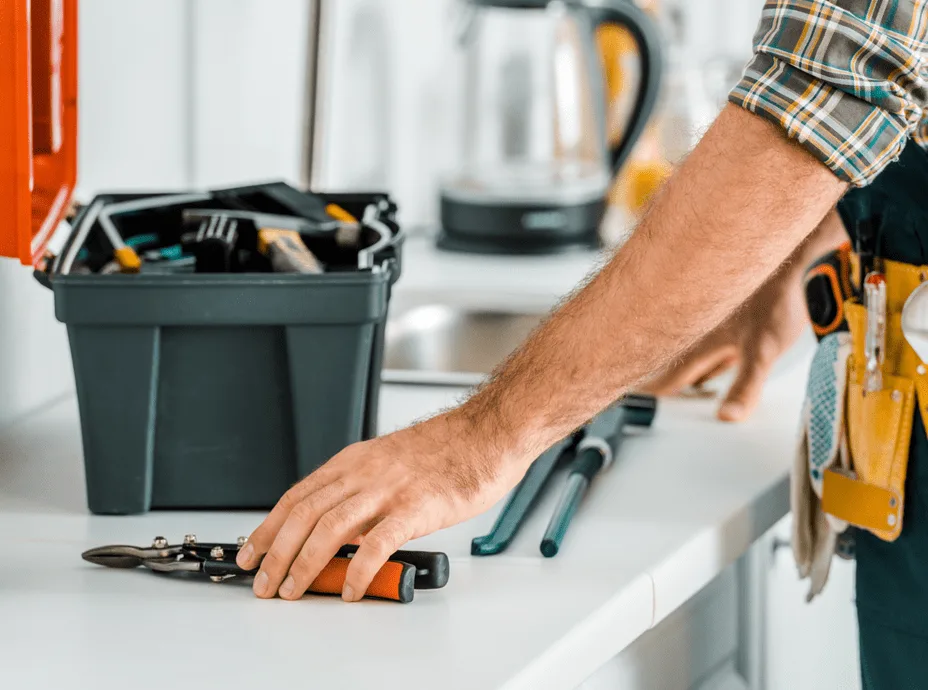
Why landlords should improve and maintain their investment property — and where to start
Owning an investment property isn’t just about buying the property, then sitting back and collecting rent — it’s about protecting and growing your asset.
Whether you’re renting out a single unit or managing a growing portfolio, here we explain why property maintenance matters, and improvements that deliver real results.
Why maintenance and improvement matter
- Attract better tenants
Quality tenants look for clean, modern, and functional homes. A property that’s well-presented is far more likely to attract responsible, long-term renters who treat it with care.
Well-maintained homes = lower vacancy rates and better tenants.
- Attract a higher rent
Tenants are willing to pay more for features like air conditioning, updated kitchens, and clean bathrooms. Minor upgrades can often justify a rent increase — even a $20–$50 weekly bump adds up fast over a year.
- Protect your property’s long-term value
Proactive maintenance prevents costly problems later on — like roof leaks, structural damage, or pest infestations. Regular upkeep preserves your investment and minimises depreciation.
- Tax benefits
Many improvements and maintenance expenses are tax-deductible. You can often claim repairs, depreciation, and capital works. Check with your accountant and arrange a depreciation schedule with a specialist.
- Increase capital growth
Renovated, well-maintained properties typically perform better over time in terms of capital appreciation. If you decide to sell in the future, a modernised property will likely attract higher offers.
Key Improvements Every Landlord Should Consider
- A fresh coat of paint
A simple coat of neutral paint can transform a tired room and make the property feel brighter and more inviting. It’s low-cost and offers high impact.
We recommend painting either between tenancies, or if you’ve long term tenants, consider decorating after around five years.
- Update flooring
Worn carpets or lino can become a tripping hazard. With pets now widely accepted in suitable properties, look for durable options such as vinyl or tiles.
Modernise the kitchen (but don’t over capitalise).
Depending on the type of property, your focus should be on aesthetics and functionality over luxury. Small upgrades such as new cabinet handles, updated benchtops and fresh tapware or splashbacks are simple low-cost renovations, which can improve rental return.
- Touch up the bathroom
Again, your focus should be on looking at what smaller upgrades you can make to make the bathroom feel clean and functional. Upgrades could include regrouting tiles, replacing vanities or mirrors, and upgrading the showerhead or tapware (ideally to water saving rating of 9 litres per minute).
- Heating/cooling systems
Tenants need to be comfortable in your property. If the property doesn’t already have one, consider installing split system air conditioning in the living area or bedrooms.
- Let the light in
Natural light is a huge selling point. If that’s limited, consider replacing outdated fixtures and adding LED downlights, or installing brighter globes for a clean, modern feel.
- Low-maintenance landscaping
Most tenants love outdoor areas, but they don’t necessarily want to put the work in… For a low-maintenance garden, consider mulched garden beds and decking.
Maintenance checklist: what to stay on top of
Aside from improvements, regular maintenance keeps your property safe and compliant – and is less likely to develop issues that can lead to costly repairs down the track.
From your insurers point of view, it is vital you meet your obligations under your policy.
When things do go wrong (and no matter how stringent we are with maintenance, things do go wrong), insurers may assess how well the property has been looked after; if a problem is deemed to be the result of poor maintenance, and could have been prevented, the insurer may not look favourable at your claim.
In addition, staying on top of maintenance can make the claims process smoother and more successful.
Here’s some essential maintenance and servicing you will need to make:
- smoke alarm servicing (required annually)
- gutter cleaning (especially before storm season)
- pest control (annually or as needed)
- routine inspections (to catch small issues early)
- appliance servicing (e.g. air con, heaters, ovens)
- plumbing and electrical safety checks
Think like a tenant, act like an investor
Serious landlords need to treat their property as a business — and their tenants as valuable customers.
Look at your property through your tenant’s eyes – is your property ‘good enough’ or does it make your tenant feel you care about where they live?
A clean, safe, well-maintained and legally compliant property doesn’t just protect your asset; it makes your investment more competitive in today’s rental market.
That’s where we come in.
As a family-run property management agency, every property entrusted to our care is managed like they are our own; we don’t just tick minimal maintenance and legal boxes, we consistently go above and beyond to ensure your valuable asset will continue to give you value for money, and a good return on your investment.
In addition, as well as saving you a lot of time and the stress of managing and maintaining your property, we give you additional important information and points you need to consider, so you are confident you are making informed decisions about your investment.
If you’re thinking of buying an investment property, or would like us to come round and review your investment property, get in touch.
Drop into the Cardiff office or give us a call on 02 4956 9777. Or send us an email at mail@newcastlepropertymanagement.com.au.
Don’t forget to check out our Facebook page for handy tips on selling your property or what to look for when buying a property.